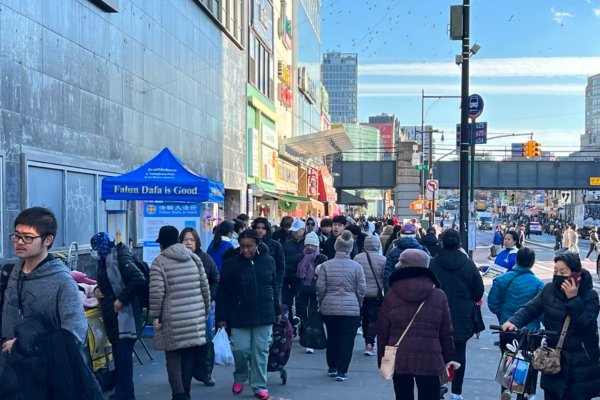A new immigrant, Mr. He, from Shenzhen, Guangdong, watched the documentary “Cost of Living” at the Flushing Library in New York on October 24 organized by the Chinese-American Planning Council (CPC). He expressed that even though he had been successful in Shenzhen for over thirty years, life in China is better than in Flushing. However, for the future of his children and the security of his assets, he was willing to come to the United States to face challenges and start anew.
He mentioned a scene in the documentary where a Chinese man with children expressed coming to America for the future of their children, food safety, and spiritual freedom, indicating that there were sufficient reasons to leave the country. Mr. He also hoped for a better environment for his two elementary school children to grow up in and noted the potential risks in Chinese society, saying, “I am the epitome of this situation as a middle-class individual who had to leave my country to seek a better future.”
Recalling his journey of starting from scratch in Shenzhen over thirty years ago, he explained how he gradually built himself up despite having nothing initially, becoming somewhat successful and leading a better life than in America.
Then why did he decide to come to the United States? He pointed out that many middle-class individuals in China, like himself, feel the crisis and potential risks in the society. He highlighted the unpredictability of possessions and the need for property and children’s safety as driving factors behind his decision.
In recent years, Mr. He noted that many Chinese middle-class individuals have been moving to the United States and settling in places like Los Angeles, Manhattan, and Long Island. They have been purchasing houses in better environments and enrolling their children in private schools, emphasizing the priority they place on their children’s well-being.
He observed that many families with children come to the United States for the sake of their children, mentioning the superior hardware of schools in Guangdong compared to New York, but noting shortcomings in the educational software that could impact a person’s life. He elaborated on the concept of software, explaining his reluctance for his children to receive political education from kindergarten onwards and the effects of late exposure to Western education on some Chinese children.
He expressed concern for young people in China who wake up to a life with houses, cars, and luxury brands, often oblivious to the social problems and the struggles their ancestors faced. He believed that their ignorance might lead to a lack of direction and a shallow existence amidst the apparent prosperity in China, which he hoped to shield his own children from.
Despite the higher cost of living and challenges in America, Mr. He emphasized his resolve to move to the United States for the betterment and safety of his family.

